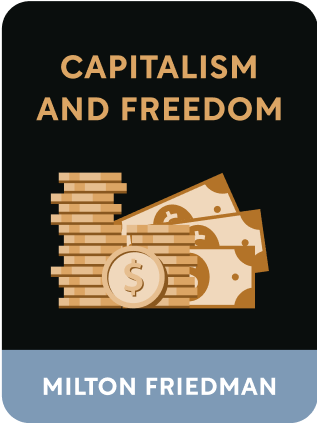

This article is an excerpt from the Shortform book guide to "Capitalism and Freedom" by Milton Friedman. Shortform has the world's best summaries and analyses of books you should be reading.
Like this article? Sign up for a free trial here .
What are equal employment opportunity laws? How are they different from open shop laws?
Equal employment opportunity laws and open shop laws both hinder voluntary exchange. Though meant to solve important problems, these laws are often thought to get in the way of good hiring practices.
Read more about equal employment opportunity laws, open shop laws, and how they lead to suppression of freedom according to Milton Freidman.
Capitalism and Discrimination
We’ve seen in earlier chapters how voluntary exchange provides a decentralizing check against the power-centralizing forces of government. Despite this, capitalism is often seen by its critics as an exploitative system that rewards the already-powerful and subjugates the powerless. But precisely the opposite is the case. The government has implemented equal employment opportunity laws to try to combat this discrimination.
By celebrating and promoting voluntary exchange, capitalism is actually a great promoter of human freedom, especially for traditionally marginalized groups. We’ll explore:
- Why racial or any other form of discrimination is incompatible with a free market;
- Why a principled opposition to discrimination requires one to oppose both equal opportunity employment laws favored by the political left and right-to-work laws favored by the political right.
(Shortform note: Friedman’s opposition to equal employment opportunity laws reflects what was once mainstream opinion, particularly among economic conservatives at the time of Capitalism and Freedom’s publication in 1962. Many today will find this view offensive, arguing that the repeal of such laws would cause direct harm to people of color and provide further support for systemic racism. We recognize these concerns and, in this summary, merely present for the reader Friedman’s arguments as they appeared in the original text.)
Equal Employment Opportunity Laws
Those on the political left tend to favor equal employment opportunity laws, enacted to solve the problem of discrimination in hiring. But such laws, while undoubtedly well-intentioned, clearly violate the economic freedoms of employers and employees.
The bedrock principle of a free-market economy is that individuals ought to be able to enter into voluntary contracts with one another. But equal opportunity employment laws might mandate that a minority candidate be hired regardless of whether or not the employer believes they are a proper fit for the position.
This in and of itself violates the employer’s freedom of contract rights. It could also have harmful consequences for their business. For example, if a department store in a community where there is strong hostility to black people is compelled by equal opportunity laws to hire a black employee, it might trigger a negative reaction from customers. The store could lose business and suffer damages as a result.
Once the government violates the principle of freedom of contract, any number of abuses becomes possible. If the government can negate freedom of contract by denying the right of employers to discriminate on the basis of race, sex, or any other individual characteristic, it could also theoretically negate freedom of contract by mandating that private employers engage in such discrimination.
To combat discriminatory practices by employers, it is far better to change the attitudes of individuals and convince them that prejudice is wrong and self-destructive than it is to use the coercive power of the state.
Open Shop Laws
The opposite of equal employment opportunity laws is open shop laws. But the political left is not solely guilty when it comes to impeding freedom of contract in the name of preventing discrimination. For their part, conservatives tend to favor state “right-to-work” or “open shop” laws. These are laws that prohibit employment contracts from requiring all employees to be members of a labor union. But if workers wish to bargain collectively with their employers and the employers agree to such terms in a contract, that is solely the business of the two parties.
So-called free-market capitalists who support anti-union legislation of this kind are favoring the use of government power to inhibit freedom of contract. There is, however, a danger that labor unions may grow so powerful as to constitute a monopoly within the labor market, thereby infringing the economic freedom of employers.
In such a scenario, the government must have the political will to employ anti-trust legislation against unions, just as it has against businesses. We will explore monopolies and their consequences on economic freedom in greater detail in the next chapter.

———End of Preview———
Like what you just read? Read the rest of the world's best book summary and analysis of Milton Friedman's "Capitalism and Freedom" at Shortform .
Here's what you'll find in our full Capitalism and Freedom summary :
- The key principles from Milton Friedman's Nobel Prize-winning book
- Why capitalism functions best when it is freed from government restraints
- How forced redistribution schemes are morally unjust






